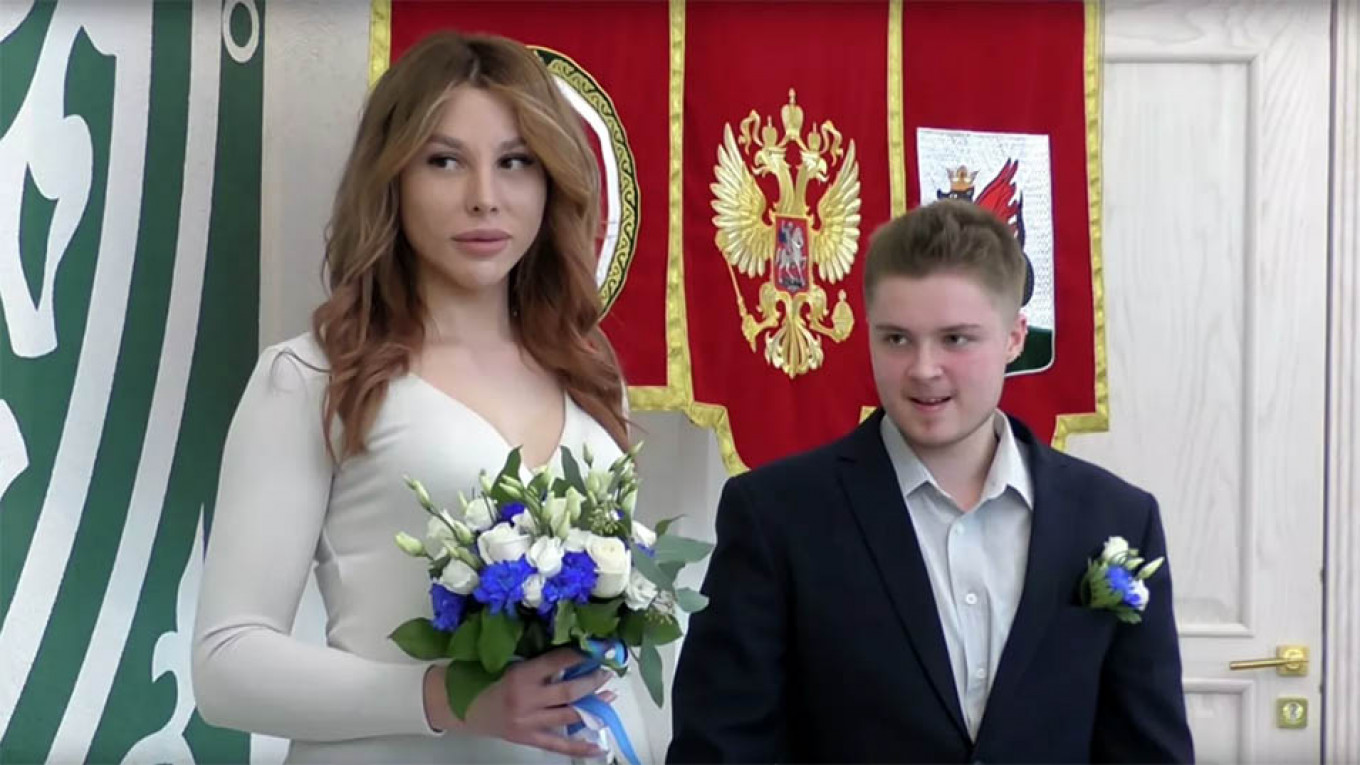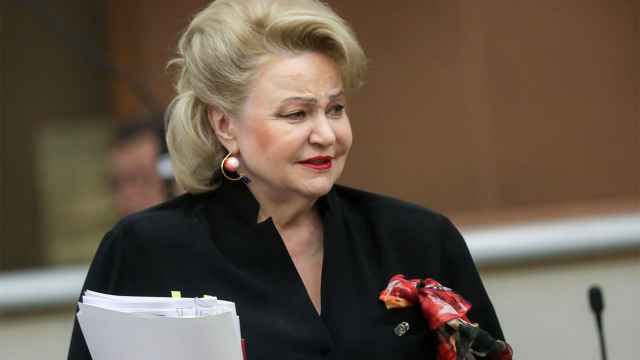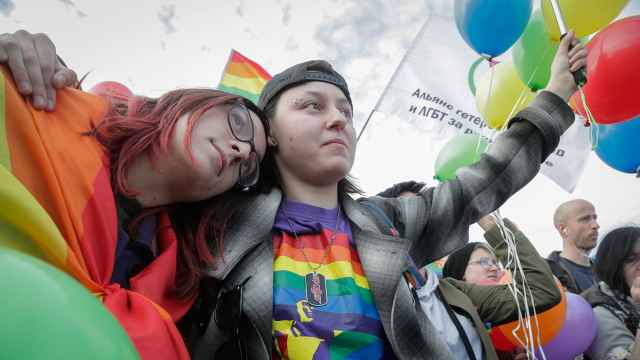Authorities in Russia have registered one of the first transgender marriages in a country that positions itself as a bastion of traditional family values.
Erika Askarova and Viktor Manuilin’s otherwise ordinary wedding made national headlines after the two posted photographs from the registry office in the city of Kazan on Dec. 12. Askarova, 30, and Manuilin, 20, told news outlets that they decided to make their relationship official months after they both changed their gender.
“We’re absolutely normal people,” Askarova told the Moskovsky Komsomolets tabloid.
“We want to convey many things to the public, primarily that we’re worthy people,” she told the Mash Telegram channel in a video interview.
When asked about potential threats to their safety, Askarova told the Idel.Realii news website she believes that the “fake” threats are the work of “invisible armchair generals of the internet.”
“People are killed, robbed and raped every day. They don’t have to be transgender, gay or lesbian,” Idel.Realii, a Tatar desk of the U.S.-funded Radio Free Europe/Radio Liberty news website, quoted her as saying.
Referring to Russia’s 2013 ban on homosexual propaganda toward minors, Askerova told Idel.Realii: “We’re heterosexual. Propaganda doesn’t apply to us.”
Research by the European University at St. Petersburg’s Center for Independent Social Research found an increase in crimes against members of the LGBT community after Russia passed the so-called “gay propaganda” law.
Almost 27,000 people have watched the wedding ceremony posted on Askarova’s YouTube page as of Monday afternoon. Online users were divided over the marriage, with comments under the video, social media posts and news stories ranging from expressions of support to homophobic insults.
Kazan’s civil registry office reportedly said that it registered the marriage because the couple submitted authentic documents identifying them as male and female. A photograph in Askerova’s passport she posted on Instagram identifies her as a female.
Askarova and Manuilin appear to be the second transgender couple to have tied the knot in Russia this year.
In September, authorities registered a marriage between a transgender man and his cisgender fianceé in a Moscow pre-trial detention center. In 2014, a transgender woman circumvented Russia’s ban on LGBT marriage to wed another woman because her passport still identified her as male.
Russia classifies transgender people as mentally ill and requires a psychiatric diagnosis of “transsexualism” to undergo prescribed and controlled hormone treatment. Russia is due to change that classification in 2020 to a sexual health issue in line with the World Health Organization’s global manual of diagnoses.
In the absence of official statistics, experts say around 15,000 transgender people live in Russia, or 0.1% of the country’s population.
In a sign of changing attitudes, a transgender woman was rehired and compensated for lost income this year in Russia's first known court case to acknowledge workplace discrimination against a transgender person. An independent poll this spring said that Russian support for the LGBT community was at a 14-year high.
A Message from The Moscow Times:
Dear readers,
We are facing unprecedented challenges. Russia's Prosecutor General's Office has designated The Moscow Times as an "undesirable" organization, criminalizing our work and putting our staff at risk of prosecution. This follows our earlier unjust labeling as a "foreign agent."
These actions are direct attempts to silence independent journalism in Russia. The authorities claim our work "discredits the decisions of the Russian leadership." We see things differently: we strive to provide accurate, unbiased reporting on Russia.
We, the journalists of The Moscow Times, refuse to be silenced. But to continue our work, we need your help.
Your support, no matter how small, makes a world of difference. If you can, please support us monthly starting from just $2. It's quick to set up, and every contribution makes a significant impact.
By supporting The Moscow Times, you're defending open, independent journalism in the face of repression. Thank you for standing with us.
Remind me later.






